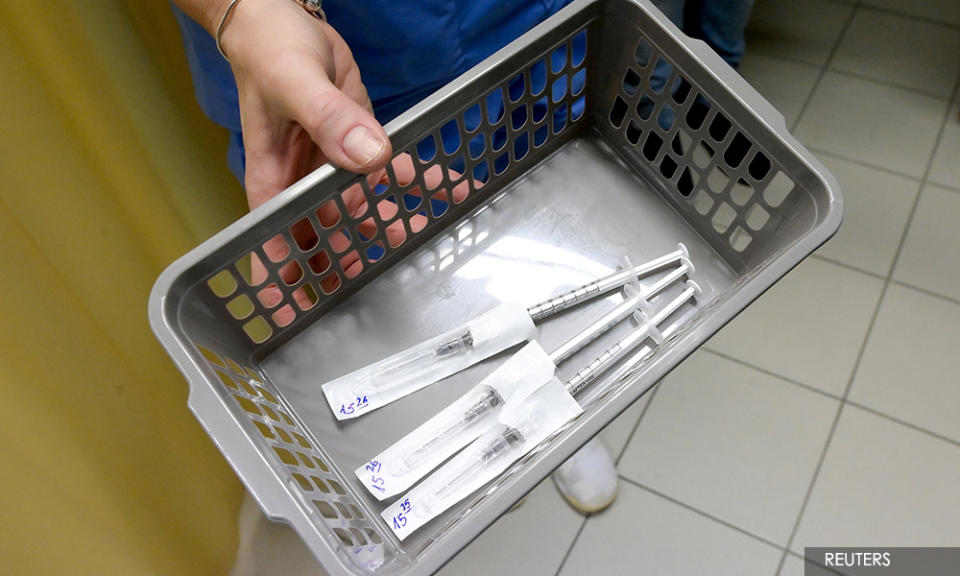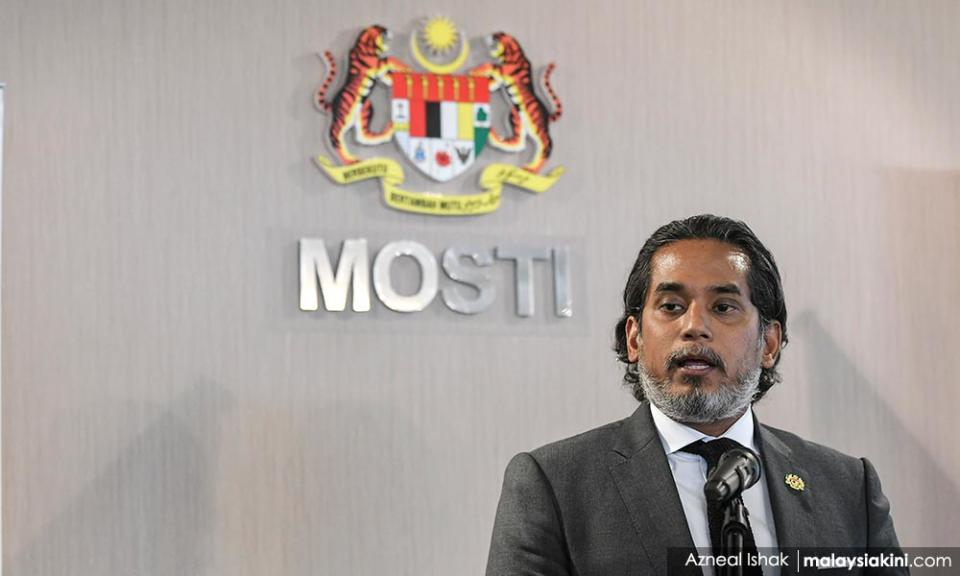Explaining non-disclosure agreements in Covid-19 vaccine procurement

COVID-19 | Last week’s spat between Science, Technology, and Innovation Minister Khairy Jamaluddin and DAP veteran Lim Kit Siang over Covid-19 vaccines highlighted an important feature of the procurement process - non-disclosure agreements (NDAs).
Why do pharmaceutical companies like Pfizer and Moderna impose NDAs in the first place? Are NDAs common? Who stands to benefit from such secrecy?
To answer these questions, we spoke to two experts - health policies specialist Dr Khor Swee Kheng and Lim Chee Han, a health economics and public health researcher.
Khor is an independent consultant for a few organisations while Lim is attached to think tank Third World Network.
Both said that NDAs are common and tend to benefit pharmaceutical companies as it allows them to price their products differently. It also allows the companies to protect themselves from liability should there be adverse effects from the vaccine.
While they disagreed in principle with the use of NDAs for Covid-19 vaccine procurement, Khor and Lim acknowledged that governments, even nation blocs like the European Union, had little choice as they need the vaccine.
Revealing vaccine prices could constitute an NDA breach, possibly resulting in nations not getting the vaccine.
Their comments below have been edited for clarity and brevity.
Why do pharmaceutical companies impose NDAs? What advantage do they seek?
Lim: Because of the scarcity of vaccines and the legal monopoly of the technology in the hands of patent-holder pharmaceutical companies, the bargaining power is not in the hands of governments, especially those from smaller countries.

Many of these vaccine products are still undergoing phase three clinical trials. The first to actually publish their result was Pfizer, but the result is only good for short-term protection. No one knows for sure how long is the protective effect of the vaccine.
Thus, it's clear that the companies would like to protect their interests. There are a few things they do not want the governments to compare with each other, or disclose to the public:
Vaccine procurement pricing
Non-indemnity for any health risks that arise from the vaccine injections
Non-guarantee of delivery timing and volume
Khor: Keeping intellectual property and patents secret provides an advantage over a pharmaceutical company’s competitors. Keeping ex-factory prices secret also enhances their negotiating strength with other buyers. When other buyers don’t know the prices, the seller has an advantage.
This is especially true because multinational pharmaceutical companies sell to countries with different levels of wealth.
Three, keeping commercial terms (freight prices, insurance terms, and mark-ups) secret provides another advantage over their competitors.
Are NDAs a common practice in drug procurements?
Khor: Drug procurement around the world is a very complex business with many variables from country to country. In general terms, NDAs are more common than not, although the strength and breadth of the NDA differ from country to country.

Lim: It is common practice - price transparency is something that the pharmaceutical industry resists strongly.
In Malaysia, we understand that the Health Ministry does not agree to NDAs for normal procurement. If the drug procurement is done through public open tender, like what is normally practised by the ministry, then there will not be any NDA or strings attached.
It is not desirable for the government to agree to an NDA but it is the will of pharmaceutical companies to impose it to protect their best interest.
How do NDAs affect Malaysia’s efforts to get a good deal when procuring Covid-19 vaccines?
Lim: It could affect us greatly due to the non-symmetry of information.
The government would not know what is the best price as well as the deal's terms and conditions if the company also signs NDAs everywhere they go. We might very likely end up paying the prices which more developed nations are paying as well.
Remember, there are other vaccines coming soon in the market. So since they are enjoying pioneer advantage, it would not be surprising if pharmaceutical companies adopt the strategy of maximising their profit.
Khor: To get a good vaccine deal, the NDA on vaccine price is important but is only one variable. Therefore, Malaysia should not get stuck on the vaccine price alone.
Khairy Jamaluddin

Khairy Jamaluddin
Other points include the delivery schedule, logistics arrangements, other value-added services, total overall spending on vaccines, and whether there is technology transfer.
How do other countries balance the need for transparency while adhering to NDAs? What are some best practices Malaysia could adopt?
Khor: Malaysia could reduce the negotiating power of pharmaceutical companies by using external reference pricing (ERP).
Basically, ERP compares the prices of drugs to a group of countries of similar size or wealth. But the ERP is imperfect - it takes time to build and is still hostage to NDAs.
Although the government is under NDAs, it can’t “hide” behind NDAs. Transparency will increase vaccine confidence and public trust, which increases public health.
Here's how we can build trust and fight corruption:
Announce the overall vaccine cost. It was previously stated that RM2.05 billion will buy vaccines for 26.5 million Malaysians (or 53 million doses). That’s RM39 per dose on average - that is cheap. Kudos to Khairy for this.

Kudos to Khairy also for offering to disclose more to the Parliamentary Select Committee and Public Accounts Committee.
The government can commit to release the details of each contract at a pre-agreed date. For example, two years after signing the contract. This is an easy clause to insert into a contract with Pfizer.
The government can release more non-price details today like the terms for logistics, indemnity, insurance, and freight. These value-added services are not price-related and can be public information.
Lim: If more countries come together and pool their demand, then perhaps the bargaining power would be higher, then they could set the terms for negotiation.
What we know about Malaysia’s Covid-19 vaccine procurement thus far
Khairy, who co-leads the government’s Special Vaccine Supply Access Guarantee Committee, shared last week that Malaysia has booked more than enough doses to vaccinate the entire adult population against Covid-19.
Bound by the NDA, he hinted that Malaysia had received a better deal from Pfizer after it was revealed Belgium will be paying 12 euros (RM59.40) per dose of the Pfizer vaccine.
The Malaysian government will spend RM2.05 billion to inoculate 26.5 million people or 82.8 percent of the population. Malaysians will receive the vaccines free of charge.
The cost includes the three confirmed agreements with Covax, Pfizer, and AstraZeneca.
The cost also includes agreements with three more companies - Sinovax, CanSinoBIO, and Gamaleya - that are in the midst of being finalised. Vaccine candidates from these three firms are still in trials and have not been approved by any regulatory agency.
Malaysia’s National Pharmaceutical Regulatory Agency (NPRA) is in the midst of evaluating whether vaccines from Pfizer can be administered in Malaysia.
The first shipment of Pfizer vaccines is expected to arrive in February 2021.



